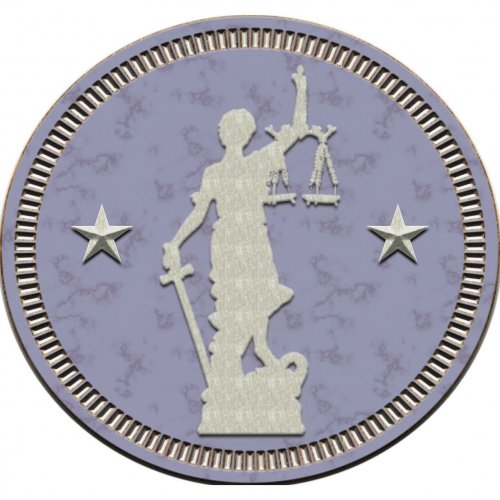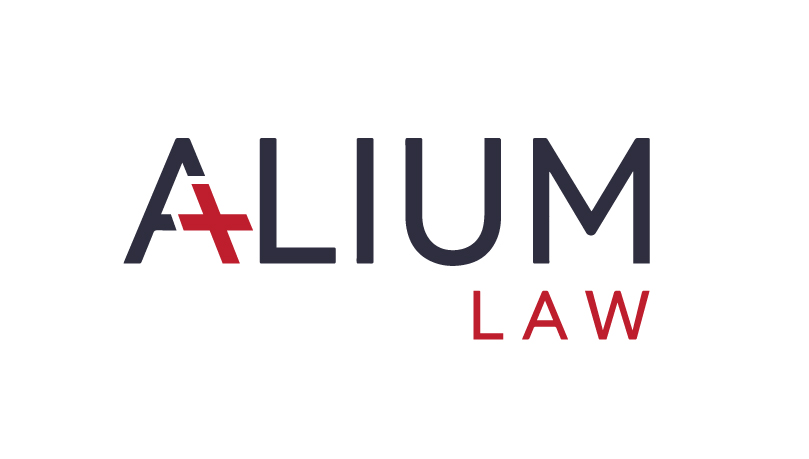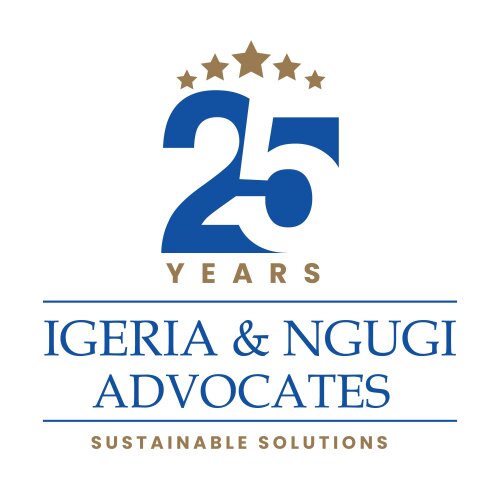Best E-commerce & Internet Law Lawyers in Nairobi
Share your needs with us, get contacted by law firms.
Free. Takes 2 min.
List of the best lawyers in Nairobi, Kenya
About E-commerce & Internet Law in Nairobi, Kenya
E-commerce and internet law in Nairobi, Kenya, is an evolving domain that intersects various legal areas including intellectual property, consumer protection, data protection, and contract law. It covers the rules and regulations surrounding online business activities, ensuring compliance with national laws such as the Computer Misuse and Cybercrimes Act, the Data Protection Act, and Consumer Protection Act. The rapid growth of digital transactions has necessitated a robust legal framework to protect both businesses and consumers in the digital marketplace.
Why You May Need a Lawyer
There are several situations where an individual or business may require legal assistance in the realm of E-commerce and Internet Law:
- Launching an online business: Ensuring compliance with local regulations and drafting terms of service and privacy policies.
- Intellectual property disputes: Dealing with copyright infringement, trademark issues, and protecting digital content.
- Data privacy concerns: Navigating the complexities of the Data Protection Act while collecting and managing consumer data.
- Contractual issues: Addressing e-contract disputes and ensuring clear, enforceable online agreements.
- Consumer protection: Handling claims from consumers regarding misleading advertising or unfair business practices.
- Cybercrime: Responding to issues such as hacking, identity theft, or fraud in the digital space.
Local Laws Overview
Kenya's legal framework for E-commerce and Internet Law is primarily shaped by several key pieces of legislation:
- The Computer Misuse and Cybercrimes Act: This law addresses offences related to cybercrime, providing measures to combat them and enhance cybersecurity.
- The Data Protection Act: Establishes principles for data protection, ensuring privacy and securing data processing in businesses.
- The Consumer Protection Act: Safeguards the rights of consumers in online transactions, promoting fair trade practices and redress mechanisms.
- The Kenya Information and Communications Act: Governs the ICT sector and lays out provisions regarding electronic transactions and communication.
Frequently Asked Questions
1. What is the importance of a privacy policy for my e-commerce website?
A privacy policy is essential as it informs users about how their data is collected, used, and protected. It is also a legal requirement under the Data Protection Act to ensure transparency and compliance.
2. How can I protect my intellectual property online?
To protect your intellectual property online, consider registering your trademarks and copyrights, using digital rights management tools, and actively monitoring for infringement.
3. What should I include in the terms and conditions of my online store?
Terms and conditions should outline the legal framework of your interactions with customers, covering areas such as purchase terms, payment, delivery, returns, and liability exclusions.
4. How do I comply with the Data Protection Act when handling customer data?
Ensure that data collection is lawful, obtain consent from individuals, implement data security measures, and provide rights for data access and correction.
5. What are the penalties for non-compliance with the Computer Misuse and Cybercrimes Act?
Penalties vary depending on the offence and can range from fines to imprisonment, highlighting the importance of adhering to cyber laws.
6. Are online contracts legally binding in Kenya?
Yes, online contracts are legally binding if they meet the essential elements of a contract, including offer, acceptance, consideration, and intention to create legal relations.
7. How can I handle online consumer complaints effectively?
Establish a clear complaint resolution process, communicate transparently with consumers, and seek to resolve issues amicably while adhering to consumer protection laws.
8. What steps can I take to prevent cyberattacks on my e-commerce platform?
Implement robust security measures such as encryption, firewalls, regular software updates, and conduct cyber risk assessments regularly.
9. Do I need a license to operate an e-commerce business in Nairobi?
While specific licenses may not be required solely for e-commerce, you must comply with general business licensing requirements and adhere to relevant sector laws.
10. Can I use international payment gateways for my Kenyan e-commerce site?
Yes, you can use international payment gateways, but ensure they comply with local financial regulations and provide secure transaction processing.
Additional Resources
For further guidance and support, consider the following resources:
- Communications Authority of Kenya (CA): Oversees regulation and manages aspects of Kenya’s ICT sector.
- Data Protection Commissioner: Ensures compliance with data protection laws and offers guidance on handling personal data.
- Kenya Law: Provides access to legal databases and resources including statutes and case law relevant to e-commerce.
- Law Society of Kenya (LSK): Offers a directory of qualified lawyers practicing in e-commerce and related legal fields.
Next Steps
If you need legal assistance in E-commerce & Internet Law, consider the following steps:
- Identify the specific legal issues you are facing and gather related information.
- Consult with a lawyer specializing in E-commerce and Internet Law for tailored legal advice.
- Prepare necessary documents and adhere to the timelines provided by the legal advisor.
- Stay informed about relevant legal updates that could impact your business or situation.
By following these steps, you can effectively navigate the legal landscape of e-commerce in Nairobi, ensuring compliance and protection in your online activities.
Lawzana helps you find the best lawyers and law firms in Nairobi through a curated and pre-screened list of qualified legal professionals. Our platform offers rankings and detailed profiles of attorneys and law firms, allowing you to compare based on practice areas, including E-commerce & Internet Law, experience, and client feedback.
Each profile includes a description of the firm's areas of practice, client reviews, team members and partners, year of establishment, spoken languages, office locations, contact information, social media presence, and any published articles or resources. Most firms on our platform speak English and are experienced in both local and international legal matters.
Get a quote from top-rated law firms in Nairobi, Kenya — quickly, securely, and without unnecessary hassle.
Disclaimer:
The information provided on this page is for general informational purposes only and does not constitute legal advice. While we strive to ensure the accuracy and relevance of the content, legal information may change over time, and interpretations of the law can vary. You should always consult with a qualified legal professional for advice specific to your situation.
We disclaim all liability for actions taken or not taken based on the content of this page. If you believe any information is incorrect or outdated, please contact us, and we will review and update it where appropriate.

















